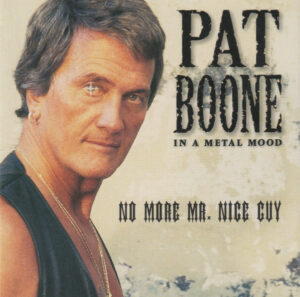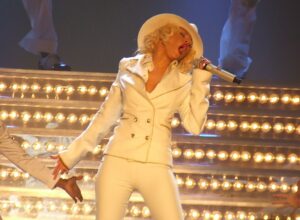Caroline Shaw’s Partita for 8 Voices, which won the Pulitzer Prize in 2013, is astounding. It’s a compendium of vocal techniques – huffs, puffs, hums, moans – built around baroque dance forms like the sarabande and the courante. I hear something new every time I listen. It’s what made me a fan.
Her 2019 album with the Attaca Quartet, Orange, is also fantastic. Patient, thoughtful, human, and organic, her string writing is beautiful. She even applies some of the same techniques she uses to write for voice. There are timbral innovations like dry plucking and delicious, jazzy bent notes.
But her new soft-pop duo, Ringdown, with her partner, Danni Lee, is just not it.
I saw Ringdown perform at Public Records last month. I went with a dear friend, a fellow Shaw fan who, like me, had great hopes for this new project. But not only were most of the songs doleful and uninspired (my companion described them as “dirges”), but Lee often distracted from the music with self-deprecating jokes and flirty jabs at some of Shaw’s performing mistakes. We debated leaving early but didn’t because the concert ended after the last song we said we’d stay for.
With its state-of-the-art sound system and otherworldly ambiance, Public Records should make any performance a compelling experience. But even that wasn’t enough to save Ringdown. I think we only clapped after one song. Doing otherwise would have felt like betraying ourselves. The rest of the audience’s reaction was similarly tepid. There was no encore.
You can hear what I mean on a couple of singles that the duo has released from their upcoming album (release date TBA).
Consider “Two-Step.” Remember how Paul McCartney left in the metronome sound in the background of “Blackbird?” The bass line in “Two-Step” is like that, but it feels pointless. The periodic string swells are trademark Shaw, but otherwise, her signature crispness is nowhere to be found. The lyrics are also lackluster. The pre-chorus is:
And if you want it (*echo*: want it)
you gotta get on it (*echo*: on it).
It feels like marching band kids (I was one) trying to be cool.
Lee is a fine singer in concert, but I can’t find anything unique in her sound. My saving grace was Shaw’s solos. She is absolutely captivating. Her voice is delicate but nimble, strong, and totally original. She doesn’t use any of her signature and bizarre vocal techniques (à la Roomful of Teeth) with Lee, but every time she sang solo, it was the song’s highlight.
Their cover of “Crazy,” made famous by Patsy Cline, is pretty good. It samples old radio sounds and features Lee’s voice popping out of a low drone like a jack-in-the-box.
Another single, “Thirst,” takes a plodding, menacing, octave riff from the slow movement of Brahms’s first violin sonata and repeats it like a sample. Lee’s singing is freewheeling to the point that it’s unmemorable because there’s no melody. It’s almost recitative. After it finished, I should have been humming Ringdown, but I was humming Brahms. And then I went home to play the piano part.
“Reckoning” is their best song. I’ll forgive the Jacob Collier-esque Mickey Mouse electronic harmonization at the beginning of it because the lyrics are great, and Shaw shines. “I met you the first day of spring,” it begins. Shaw continues: “From your mouth, a creative reckoning.” What does that mean? I don’t know, but it reminds me of Yeats, so it’s sufficiently ambiguous and poetic enough to warrant contemplation.
Some wonderful UFO-ish arpeggios ensue, and we’re plunged into a strange, wintery romance. Rich, low strings come in with an ascending melody, and we’re wrapped in swaddling sound. It’s catchy, too. I can actually sing it to myself as I write this. The refrain is especially moving. “How I love you… Of course I love you,” the duo sings. Someone once said this to me; the “of course” banished my doubt. Shaw and Lee understand how good that felt.
The music of Ringdown feels like Shaw is compromising for Lee’s sake. It sounds more like the music Lee wants to make than what Shaw wants to make. Even so, I’m refreshed that an award-winning classical composer has the humanity to be this vulnerable, this colloquial, with nerdy fans who might only like her for her compositional prowess and vocal pyrotechnics. We now see the person behind the music. That’s rare in classical music, which prizes the music over the music-maker. When you hear an orchestra, the players aren’t playing music that expresses their feelings. They’re expressing what someone else, usually a long time ago, felt. I love hearing this immediacy from Shaw – what she’s feeling right now. It’s as if Beethoven had sung us songs about his “immortal beloved.”
Photo: Feast of Music, CC BY 2.0, via Wikimedia Commons




